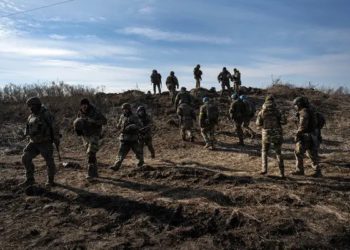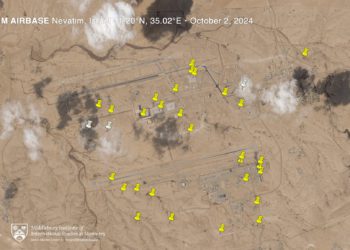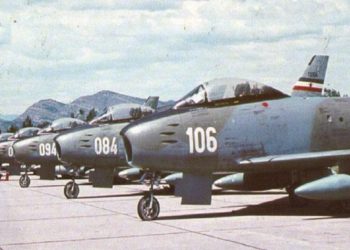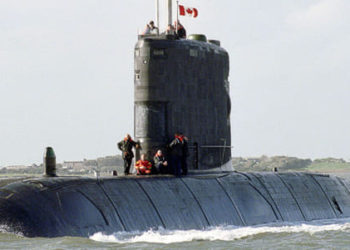The Barbary Wars: The First War on Terror. Does this scenario sound familiar to you:
American interest are under attack and its citizens are being held against their will by hostile groups based in North Africa. In response the United States and its allies commit their military might in an attempt to stop these extremists and rescue its people, as well as stop the threat posed by these groups in the region. Sounds a lot like something that would happen today, doesn’t it? But what if I were to tell you that such an incident had occurred just over 200 years ago?
Well believe it or not, such an event had occurred and saw a very young United States Navy (alongside its Marines) being deployed overseas to fight an enemy for the very first time and on their home turf. The ensuing conflict could be seen as the first real War on Terror by the United States, but is remembered by history as “The Barbary Wars.”
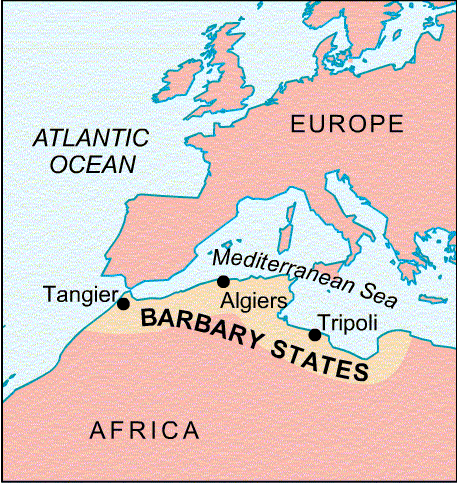
For centuries leading up to the conflict, the Barbary Coast (Modern day North Africa) were home to the Barbary Corsairs/Berber Pirates. Operating out of ports located in what are now Algeria, Tunisia and Libya, the Corsairs operated throughout the Mediterranean and conducted raids on numerous coastal towns and villages on the European Mainland. Reaching as far north as Iceland and had even been seen operating off the coast of mainland Brazil at the height of their power. These Corsairs were not only Pirates, but also slaversl. As the main purpose of these raids were to kidnap persons to be sold on the Arab Slave Markets.
As you can guess by now, they were not a nice people to encounter and if you were not sold into slavery, then you were held for ransom until your government paid for your release. Interestingly enough, the region in which these pirates/slavers operated from was technically under the dominion of the Ottoman Empire. But they more or less acted like their own independent countries and numerous European nations would pay these groups directly to ensure the safety of their merchant fleets and their crews.
By the 1780s, the Barbary Corsairs were still active and were bringing in huge amounts of income from the European powers. When the newly formed United States began to conduct trade in the Mediterranean, their merchant ships and crews soon began to fall prey to these pirates and in 1786, the U.S. Government became the latest country to pay off these groups so as to protect their interest. By 1797, the United States was paying the Barbary states to the tune of $1.25 million dollars annually. This was A LOT of money for a country that was just over 20 years old, it was proving to be major strain on the economy. Not to mention that this agreement was largely unpopular with the American people, as they believed the money could be used to build a navy that could protect merchant ships.
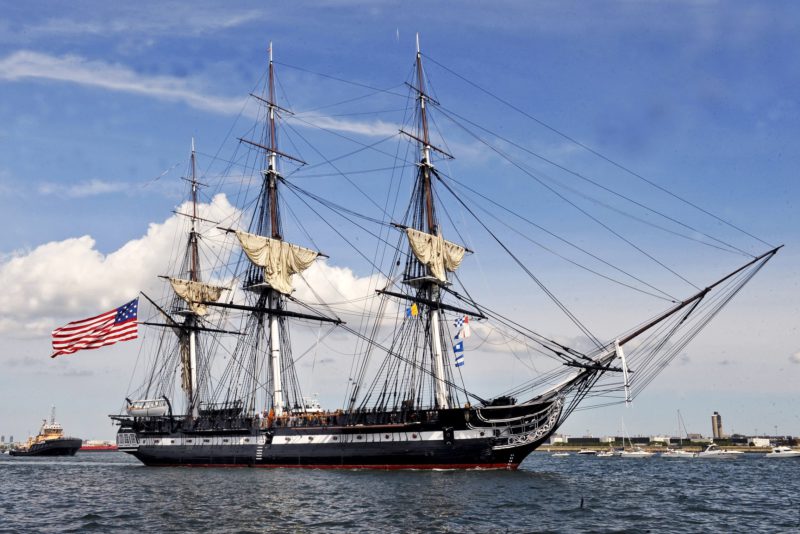
In 1800, Thomas Jefferson, who was sworn in as the Third President of the United States, stated that the country would no longer pay tribute to the Corsairs. Thus would begin “The First Barbary War”, as Jefferson would order the newly formed United States Navy to send vessels to deal with the Barbary states.
The American force was under the command of Commodore Edward Preble and were set to face off with the North African states, but they were not alone in this fight. Upon arriving in the Mediterranean, the U.S. Navy linked up with elements of the Swedish Navy. Who themselves were also at war with the Barbary States and together, they began to conduct operations against the Corsairs. With the U.S.S. Enterprise engaging and capturing a 14 gunned Barbary vessel on August 1st of 1801.
In may of that same year, Commodore Preble manage to gain the support of King Ferdinand IV of the Kingdom of Naples. (Italy was not a unified country just yet). Despite being at war with Napoleon, Ferdinand supplied the American flotilla and granted it access to the ports of Messina, Syracuse and Palermo to be used as a naval base to launch operations against the Barbary Corsairs. Namely against the city of Tripoli, which at the time was a fortress city protected by a 25,000 man army and a small fleet of heavily armed vessels.
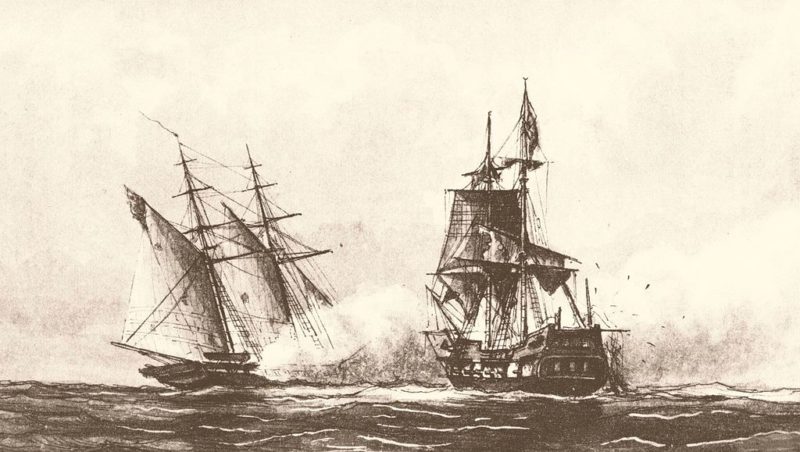
Though managing to gain a few small victories against the Corsairs, the blockade itself was not as effective as once originally hoped as the Corsairs still maintained a sizable force within the walled city of Tripoli.
But in October 1803, disaster did striked: The U.S.S. Philadelphia ran aground on an uncharted reef near Tripoli. With all attempts to free the vessel unsuccessful, the warship was quickly captured by Tripolian forces, the crew and the vessel’s commanding officer were captured and were held as hostages. The Philadelphia itself was converted into a battery to be used against the Americans.
Soon, the US Navy would soon get its revenge, as on the night of February 16th, 1804, a raiding force consisting of Marines lead by Lt. Stephen Decatur, managed to capture another Tripolian gun boat. But Decatur and his men were not finished, as they used the captured vessel to retake the Philadelphia by surprise and with the remaining American fleet providing fire support, the Marines set fire to the vessel. Denying the Tripolians the use of the vessels and possibly earning the title of the very first Black Operation ever carried out by the U.S. Military.
It even gained the attention of a one Admiral Horatio Nelson, who was quoted of saying that it was : “The most bold and daring act of the age”
You know you did something right when Lord Nelson himself gives you props.

For the rest of 1804, Preble and his force would continue to launch numerous attack on the fortress city but with little to no success. Most notably, was the failed attempt to use a fire ship to destroy the enemy fleet in harbor when it exploded before the crew on board could abandon ship.
The turning point of the campaign would come in 1805, when a group of Marines lead by “General” William Eaton and 1st Lt. Presley O’Bannon, landed in Egypt and raised an army of Mercenaries consisting of Greeks, Arabs and even Berbers. From Egypt the force marched through the desert before they arrived at the Tripolian city of Derna. (This was 1805, things were a lot different back then). This would not only be the first land battle to be fought by the U.S. on foreign soil, but their first victory as well, as the mercenary force managed to capture the city despite being out numbered.
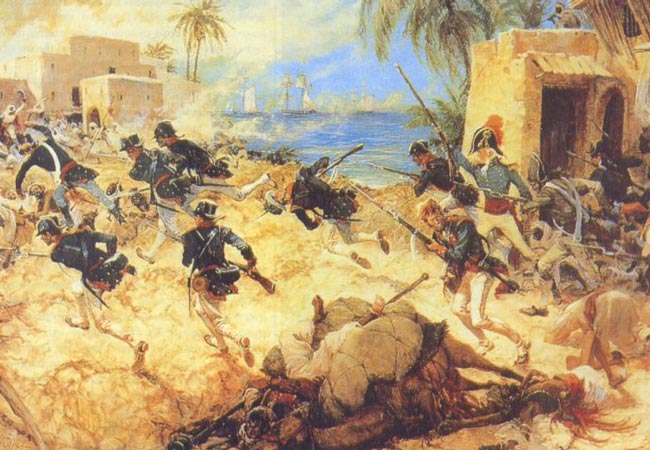
The loss of Derna was a major blow for the Tripolians and its leadership, ultimately leading to the signing of a peace treaty in June 10th. But it was a bitter sweet victory for the U.S., especially for General Eaton as he felt as if his efforts had been squandered when they captured Derna. He believed that the city could have been used as a tool to secure the release of all the hostages, rather than the Government still paying $60,000 for their release. He also believed that the honor of the United States had been compromised when it abandoned Hamet Karamanli, a major ally of the Americans during the war. Yes, politics back then were just as messy as they are now.
Although a treaty was signed by Tripoli, in 1807 Algiers had once again begun to attack American shipping and take sailors hostage. This turn of events could not have come at a worse time for the navy, as increasing tensions between the United States and the British Empire began to grow. Eventually culminating with the war of 1812. The United States at this time would not be able to protect their assets in the Mediterranean, as their fleet were more concerned with the Royal Navy in the Atlantic. It would not be until 1815 that the U.S. Navy would be able to send another fleet to deal with the Algerian Corsairs, but this was not the same navy from years before.
This time it was a force that was more experienced after their encounters with the British Royal Navy and were equipped with vessels which, at the time, were the most advanced in the American Navy. In March of that year, Congress authorized the deployment of two squadrons to leave both Boston and New York.
Leading these units were now Commodore Stephen Decatur and Commodore William Brainbridge. Both of whom were veterans of the first Barbary war and Brainbridge was the commander of the Philadelpha when she was captured during the first war. But only Decatur’s force whould be in action in the Mediterrainian before the war came to an end.
Within days of arriving in the Mediterranean, Decatur’s squadron encountered two Algerian warships, one of which was the Flagship for the Algerian fleet. Decatur’s force made short work of the would be threats, capturing both vessels before they eventually arrived in Algiers and began negotiations with the Regency of Algiers. The second Barbary war did not last as long as the first one, but it more or less signaled the end of the Barbary pirates. After the capitulation of the Regency of Algiers, other European powers became more involved in the fight against the Barbary Corsairs. As the wars which had engulfed the continent for years had come to an end and allowed the naval powers to focus on Barbary coast.
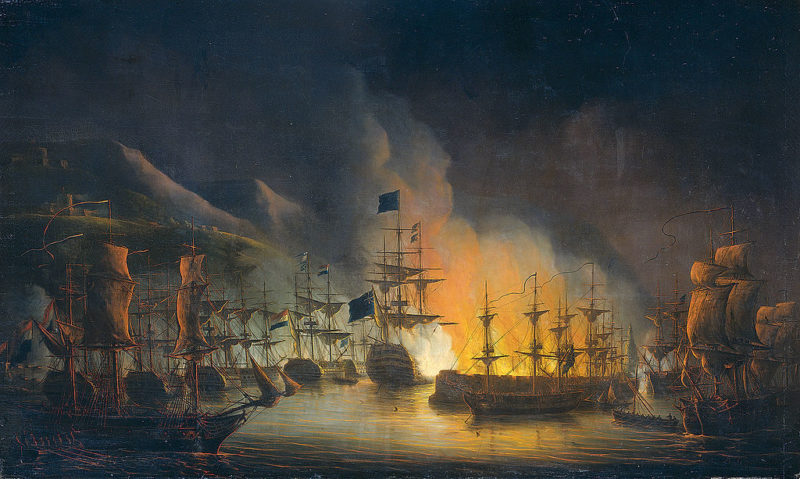
The first of whom would be the British and Dutch who ended up bombarding Algiers after the Regency not only refused to release christian slaves, but ended up killing 200 of them out of spite. Of course the Royal Navy and Dutch made him regret his actions, as they more or less crippled the city. As time passed, the European powers were able to challenge the Barbary states and by the 1830, the Barbary Corsairs ceased to exist. As a lot of their territories were annexed by European and Ottoman empires. Though they still operated in Africa and continued to raid numerous villages as far south as the Congo for slaves in the Arab slave trade.
The Barbary Wars was more or less one of those major events in history that most people tend to overlook. It was the first time that the United States fought a war on foreign soil and worked together with its allies. It also saw the decline of a group who more or less terrorized entire populations for centuries and ended a slave Empire that dwarfed the Atlantic slave trade.
In a way, it really was the First War on Terror.




